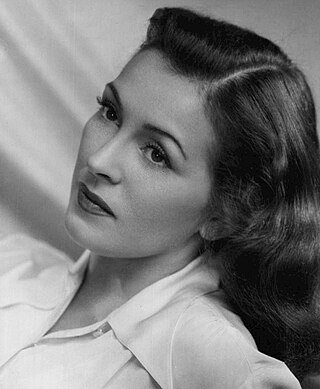
Nancy Kelly was an American actress in film, theater, and television. A child actress and model, she was a repertory cast member of CBS Radio's The March of Time, and appeared in several films in the late 1920s. She became a leading lady upon returning to the screen in the late 1930s, while still in her teens, and made two dozen movies between 1938 and 1946, including portraying Tyrone Power's love interest in the classic Jesse James (1939), which also featured Henry Fonda, and playing opposite Spencer Tracy in Stanley and Livingstone, later that same year. After turning to the stage in the late 1940s, she had her greatest success in a character role, the distraught mother in The Bad Seed, receiving a Tony Award for Best Actress in a Play for the 1955 stage production and an Academy Award nomination as Best Actress for the 1956 film adaptation, her last film role. Kelly then worked regularly in television until 1963, then took over the role of Martha in the original Broadway production of Who's Afraid of Virginia Woolf? for several months. She returned to television for a handful of appearances in the mid-1970s.
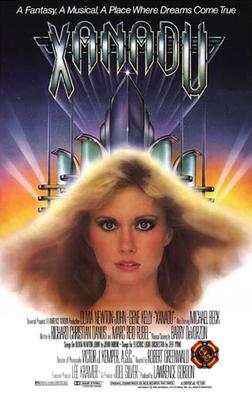
Xanadu is a 1980 American musical fantasy film written by Richard Christian Danus and Marc Reid Rubel and directed by Robert Greenwald. The film stars Olivia Newton-John, Michael Beck, and Gene Kelly in his final film role. It features music by Newton-John, Electric Light Orchestra, Cliff Richard and the Tubes. The title is a reference to the nightclub in the film, which takes its name from Xanadu, the summer capital of Kublai Khan's Yuan dynasty in China. The city appears in Kubla Khan by Samuel Taylor Coleridge, an 1816 poem quoted in the film.
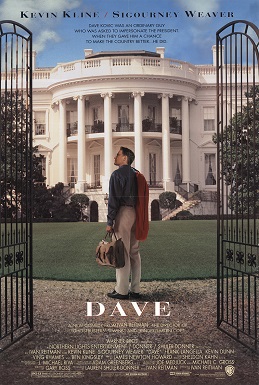
Dave is a 1993 American political comedy film directed by Ivan Reitman, written by Gary Ross, and starring Kevin Kline and Sigourney Weaver. Frank Langella, Kevin Dunn, Laura Linney, Ving Rhames, Charles Grodin, and Ben Kingsley appear in supporting roles. Dave was a box office success, and was met with critical acclaim.

Slim is a 1937 American romantic drama film directed by Ray Enright and starring Pat O'Brien, Henry Fonda and Margaret Lindsay. It is sometimes (incorrectly) called Slim the Lineman. The picture is a film adaptation of the 1934 novel Slim by William Wister Haines, which concerns linemen in the electric power industry. The supporting cast features Jane Wyman.

William Hope was a pioneer of so-called "spirit photography". Based in Crewe, England, he was a member of the well known spiritualists group, the Crewe Circle. He died in Salford hospital on 8 March 1933.

The Kraft Suspense Theatre is an American television anthology series that was produced and broadcast from 1963 to 1965 on NBC. Sponsored by Kraft Foods, it was seen three weeks out of every four and was pre-empted for Perry Como's Kraft Music Hall specials once monthly. Como's production company, Roncom Films, also produced Kraft Suspense Theatre.. Writer, editor, critic, and radio playwright Anthony Boucher served as consultant on the series.
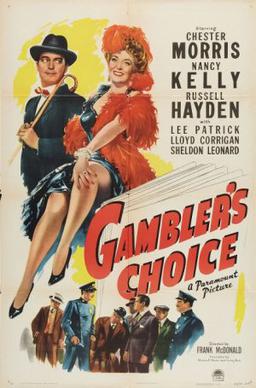
Gambler's Choice is a 1944 film directed by Frank McDonald and starring Chester Morris and Nancy Kelly.

Reunion in France is a 1942 American war film distributed by Metro-Goldwyn-Mayer starring Joan Crawford, John Wayne, and Philip Dorn in a story about a woman in occupied France who, learning her well-heeled lover has German connections, aids a downed American flyer. Ava Gardner appears in a small uncredited role as a Parisian shopgirl. The movie was directed by Jules Dassin.

Charles E. Arnt was an American film actor from 1933 to 1962. Arnt appeared as a character actor in more than 200 films.
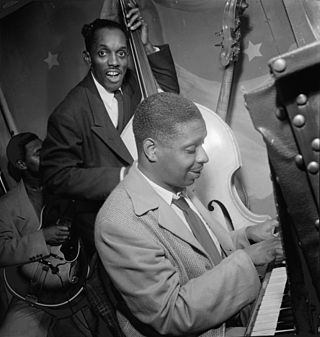
James Henry Jones was an American jazz pianist and arranger.
Public Hero ﹟1 is a 1935 American crime film starring Lionel Barrymore, Jean Arthur, Chester Morris and Joseph Calleia. The Metro-Goldwyn-Mayer production was directed by J. Walter Ruben.
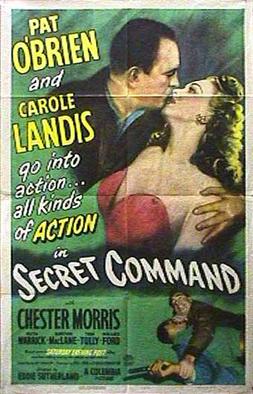
Secret Command is a 1944 American drama war film directed by A. Edward Sutherland and starring Pat O'Brien and Carole Landis. It was nominated for the Oscar for Best Effects in 1945.
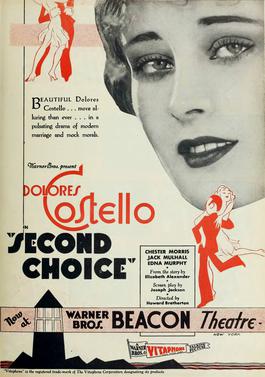
Second Choice is a 1930 pre-Code black-and-white film released by Warner Bros. and starring Dolores Costello and Chester Morris. The film is notable as being the first in which Dolores Costello sang. It is a lost film. The film was based on the story by Elizabeth Alexander and was adapted for the screen by Joseph Jackson.
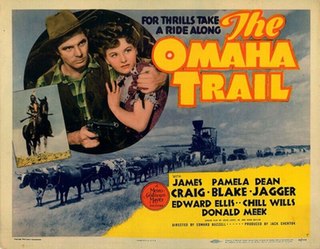
The Omaha Trail is a 1942 American Western film directed by Edward Buzzell. It stars James Craig and Pamela Blake.
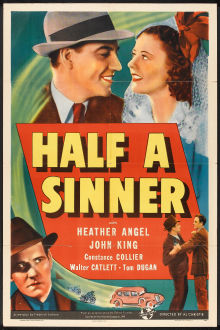
Half a Sinner is a 1940 American comedy crime film directed by Al Christie. It stars Heather Angel as a schoolteacher who in one day becomes Public Enemy Number One in Pennsylvania. The film is based on Dalton Trumbo's short story "Lady Takes a Chance". The working titles of this film were Everything Happens to Ann and The Lady Takes a Chance.

No Hands on the Clock is a 1941 American comedy mystery film directed by Frank McDonald starring Chester Morris as detective Humphrey Campbell. The cast also included Jean Parker and Rose Hobart. It was produced by Pine-Thomas Productions and released by Paramount Pictures.

Alias Boston Blackie (1942) is the third in a series of fourteen Columbia Pictures "B" movies starring Chester Morris as Boston Blackie. It was preceded by Meet Boston Blackie, Confessions of Boston Blackie and followed by Boston Blackie Goes Hollywood. Once again, Blackie is suspected of committing a crime, in this instance of helping a prisoner escape.

After Midnight with Boston Blackie is a 1943 crime film directed by Lew Landers. It is the fifth of a series of 14 Columbia Pictures films starring Chester Morris as Boston Blackie. When a recently paroled friend of Boston Blackie is killed, he finds himself once again the prime suspect of Police Inspector Farraday.

Boy Meets Girl is a 1938 American screwball comedy film directed by Lloyd Bacon and starring James Cagney and Pat O'Brien. The supporting cast features Marie Wilson, Ralph Bellamy, Frank McHugh, Dick Foran and Ronald Reagan. The screenplay by Bella and Sam Spewack is based on their 1935 stage play of the same name, which ran for 669 performances on Broadway. The two zany screenwriters played by Cagney and O'Brien were based on Ben Hecht and Charles MacArthur, while Ralph Bellamy's part as the producer was based on Darryl Zanuck of 20th Century Fox.

Shadows is a 1919 American silent film drama produced by Samuel Goldwyn and directed by Reginald Barker. It stars opera singer Geraldine Farrar.



















